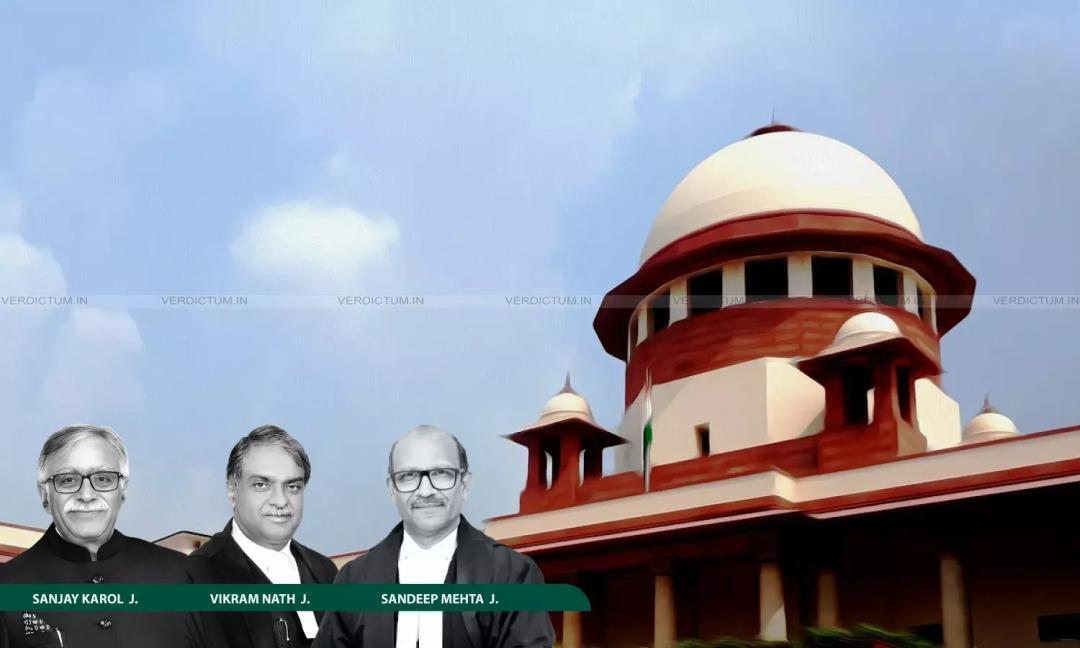
SC Expunges Rajasthan HC’s Remarks against Judicial Officer
In a recent judgment, the Supreme Court has expunged the remarks made by the Rajasthan High Court against a Judicial Officer in a case where bail was granted to an accused. The Apex Court also reiterated that High Courts should ordinarily refrain from passing strictures against judicial officers while deciding matters on the judicial side.
The case, Kaushal Singh v. The State of Rajasthan (2025 INSC 871), was a bail application filed by the accused, Kaushal Singh, who was arrested by the police for allegedly committing a crime. The trial court had rejected the bail application, but the Rajasthan High Court granted bail to the accused, while passing certain remarks against the Judicial Officer who had rejected the bail application.
The remarks made by the Rajasthan High Court were that the Judicial Officer had “acted in a mechanical manner” and had “failed to appreciate the probabilities of the case.” The Judicial Officer was also criticized for not having “thrown any light” on the probability of the accused’s involvement in the crime.
The Supreme Court, while hearing the appeal against the bail order, took cognizance of the remarks made by the Rajasthan High Court and observed that such strictures were not necessary or justified in the matter. The Apex Court held that High Courts should generally refrain from passing strictures against judicial officers while deciding matters on the judicial side.
The Supreme Court’s reasoning was that judicial officers are responsible for deciding cases based on the evidence and the law, and it is for the High Courts to review their decisions on appeal. Passing strictures against judicial officers can be counterproductive and may undermine their confidence and morale.
Furthermore, the Supreme Court noted that the Rajasthan High Court’s remarks were not only unbecoming but also unjustified, as the Judicial Officer had exercised his discretion in accordance with the law and the evidence available. The Apex Court also observed that the remarks may have caused harm to the reputation of the Judicial Officer and may have created an atmosphere of mistrust between the different branches of the judiciary.
In expunging the remarks made by the Rajasthan High Court, the Supreme Court reiterated the importance of maintaining cordial relations between the different branches of the judiciary. The Apex Court also emphasized the need for High Courts to exercise restraint while reviewing decisions of judicial officers and to avoid making personal attacks or passing strictures against them.
In conclusion, the judgment of the Supreme Court in Kaushal Singh v. The State of Rajasthan (2025 INSC 871) is a significant development in the jurisprudence of judicial review and decision-making. The judgment emphasizes the importance of maintaining cordial relations between the different branches of the judiciary and the need for High Courts to exercise restraint while reviewing decisions of judicial officers.
Source:






